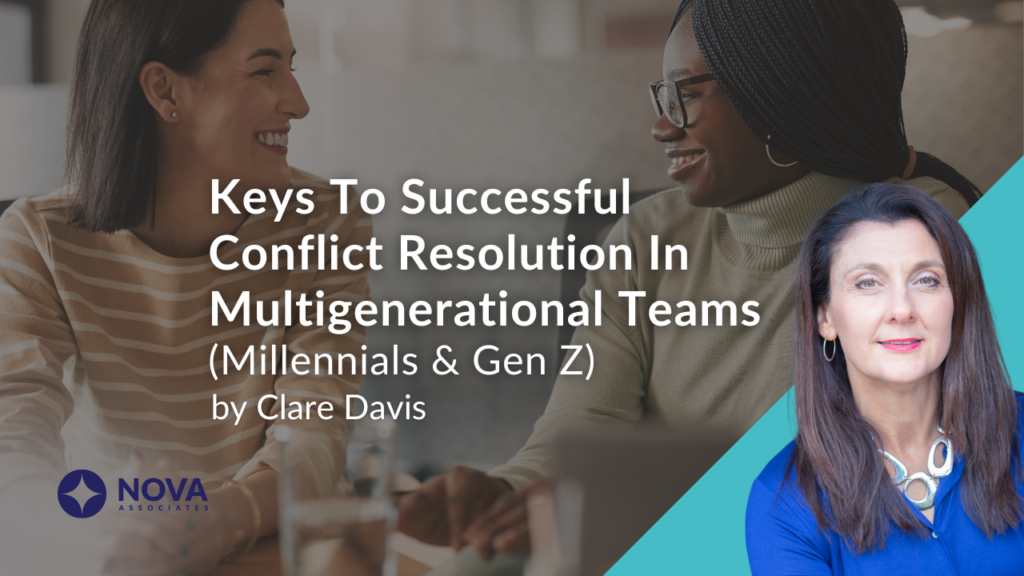
Have you ever witnessed a generational clash in the workplace, where a simple disagreement snowballed into frustration and resentment, leading to resignations, frustration, and low staff morale?
The simple fact is, that the workforce is becoming increasingly diverse, with Millennials and Gen Z now making up a significant portion of the employee base. Their communication styles and expectations often differ from those of older generations.
Misunderstandings can easily arise, leading to conflict that hinders productivity, morale, staff turnover, and profits.

I spoke to a Gen Z team member recently.
A recent conversation between her and her Gen X manager highlighted the importance of understanding generational differences. The Gen Z employee was yearning for travel experiences missed due to Covid, so requested a longer unpaid leave (allowed by their contract).
However, the manager, valuing team dedication, declined the request. This situation highlights a potential disconnect: Gen Z often prioritises experiences, while Gen X may prioritise career stability. By fostering open communication and exploring flexible options (like shorter breaks or staggered leave), both manager and employee could have found a solution that benefits everyone.

Unfortunately, due to the leave request being declined, the employee is now seeking a position that offers more flexibility for travel experiences. This situation highlights the potential benefit of exploring creative leave options to retain valuable talent who prioritise such experiences.
Unresolved conflict between generations can have serious consequences, such as:
- Decreased Productivity. Teams entrenched in conflict lose focus on achieving goals.
- High Staff Turnover. Feeling undervalued or unheard, talented employees may seek opportunities elsewhere.
- Negative Work Environment. Constant friction creates a stressful and unpleasant atmosphere for everyone.
As a manager myself, I know it can be tough when your team has different priorities than you did at their age. It can be hard to wrap your head around requests that wouldn’t have been on your radar back then.
But there is a solution. You can use trusted methods and skills to work with your team, not against them. To do this you have to realise, you play a crucial role in navigating generational differences and fostering a culture of understanding.
Effective communication and understanding generational differences are key to resolving conflict and fostering a happy work environment where employees feel valued, staying committed and continue relationships enhancing your profits.

Imagine a team with diverse age groups working on a challenging project. A disagreement arises, but this time, the you, as the leader intervenes positively. You facilitate a conversation where everyone feels heard. Differences are acknowledged, and a collaborative solution emerges.
The team moves forward, united and motivated. This is the power of conflict resolution in a multi-generational workplace. By fostering understanding and open communication, you and other leaders can build a team that thrives on diversity and achieving remarkable things together.
Here are 3 ways you can master conflict resolution between the generations:
- Encourage open dialogue and active listening across generations. Create safe spaces where everyone feels comfortable expressing their viewpoints.
- Recognise and appreciate generational communication styles. For example, Millennials might prefer face-to-face meetings or instant messaging, while older generations may rely more on email or formal presentations.
- Shift the focus from differences to shared objectives. Remind the team that they are working towards a common goal, even if their preferred approaches differ.
Leaders and managers, are you feeling the generation gap within your team? Schedule a virtual coffee and let’s chat about how you can master conflict resolution in your organisation.
